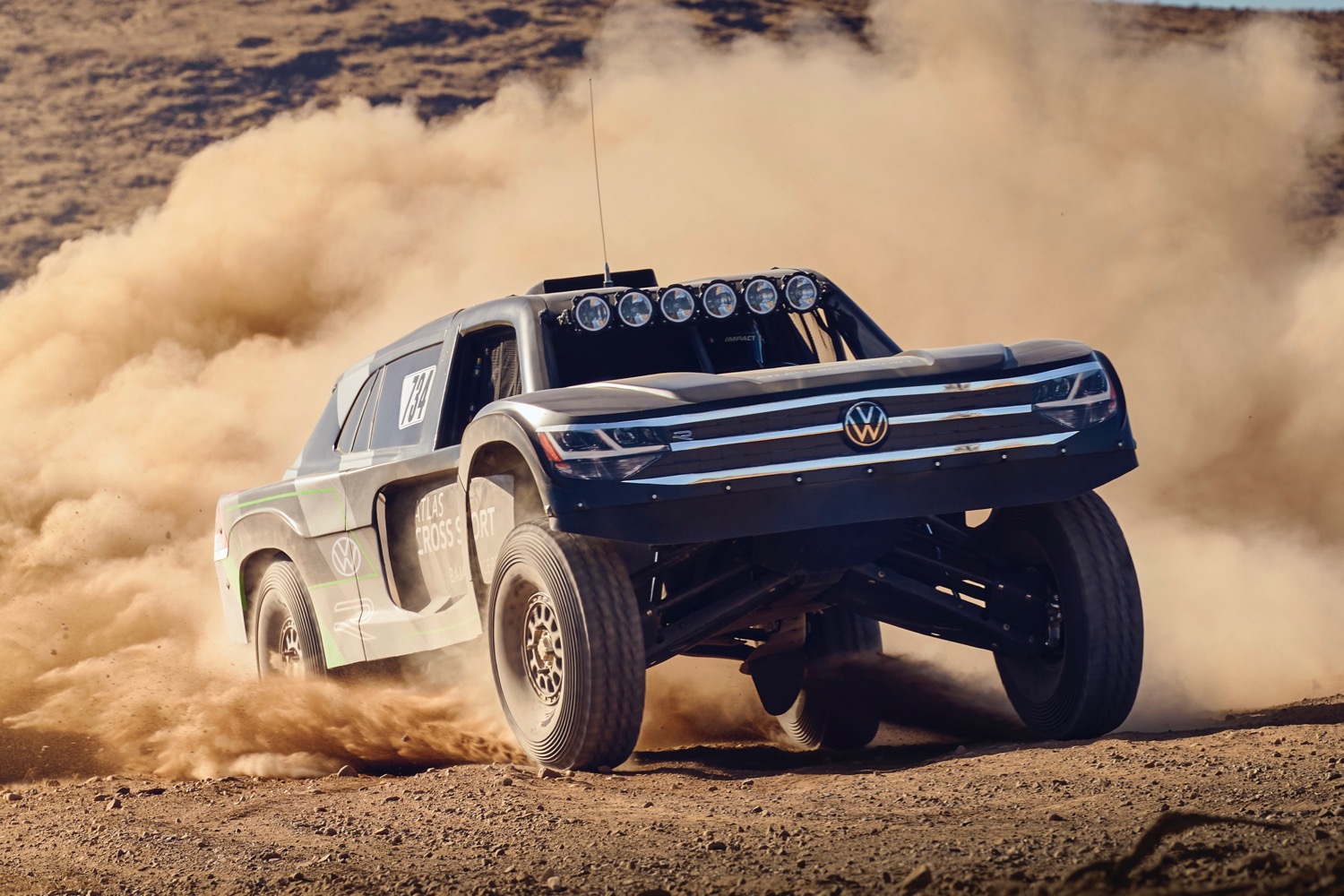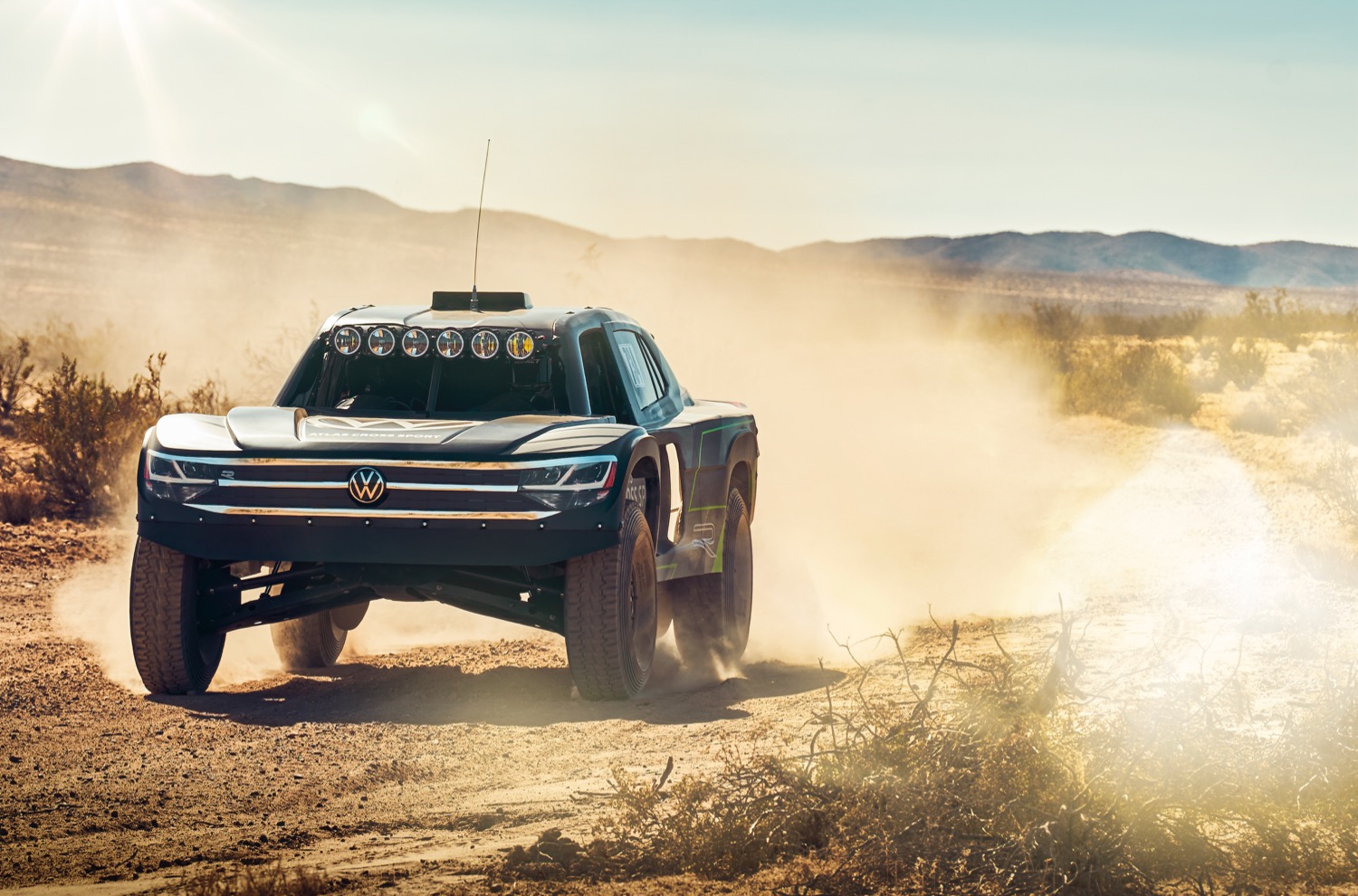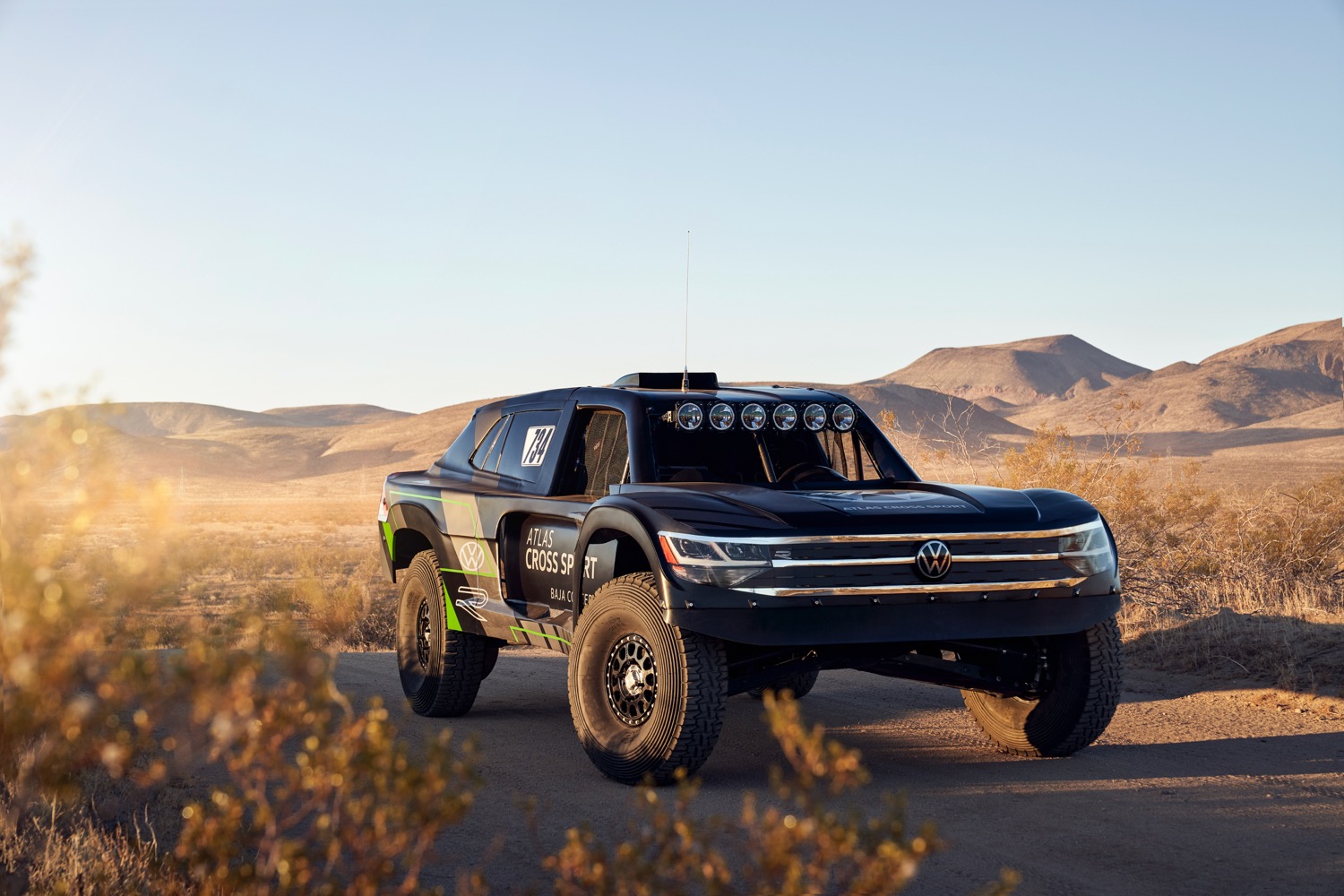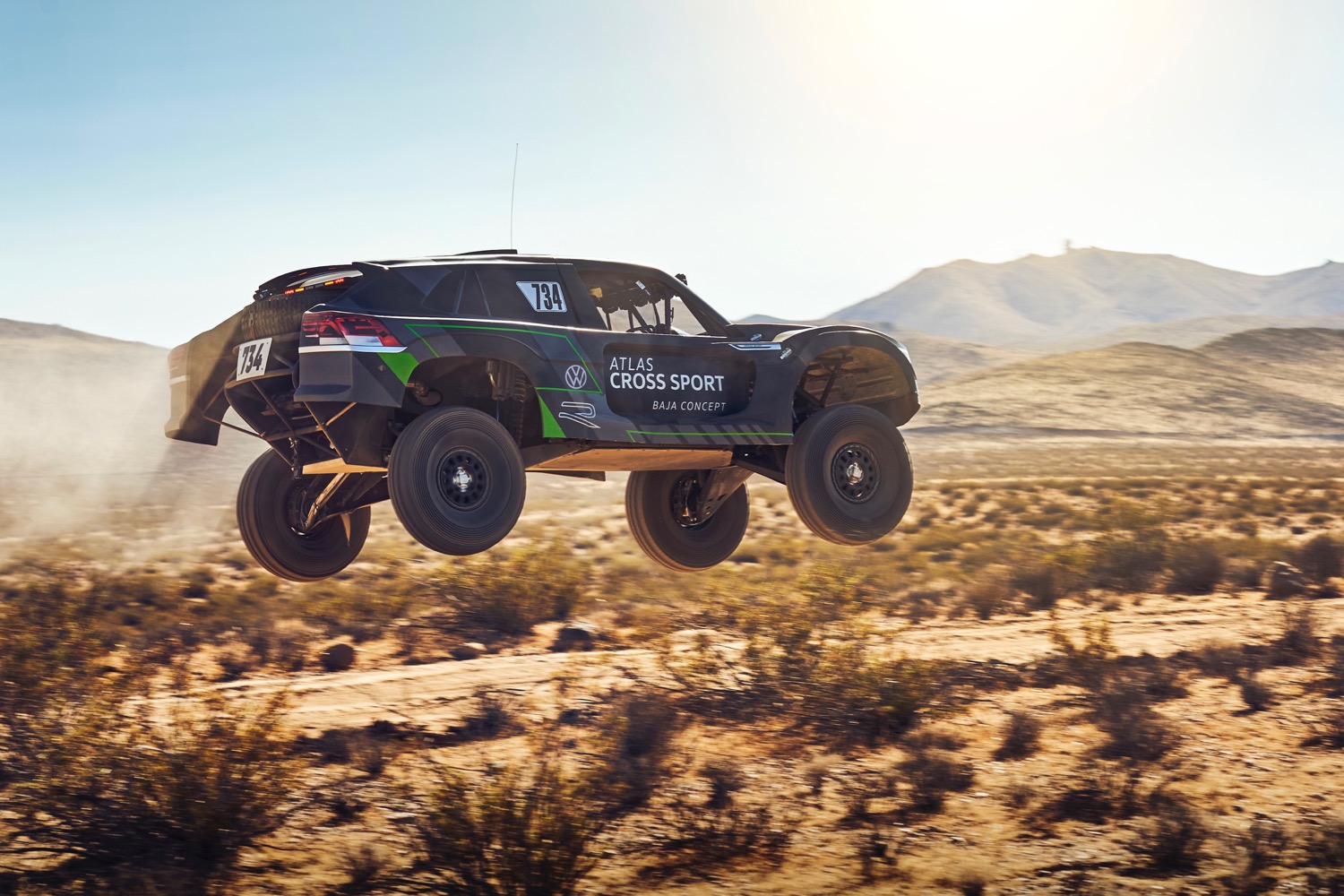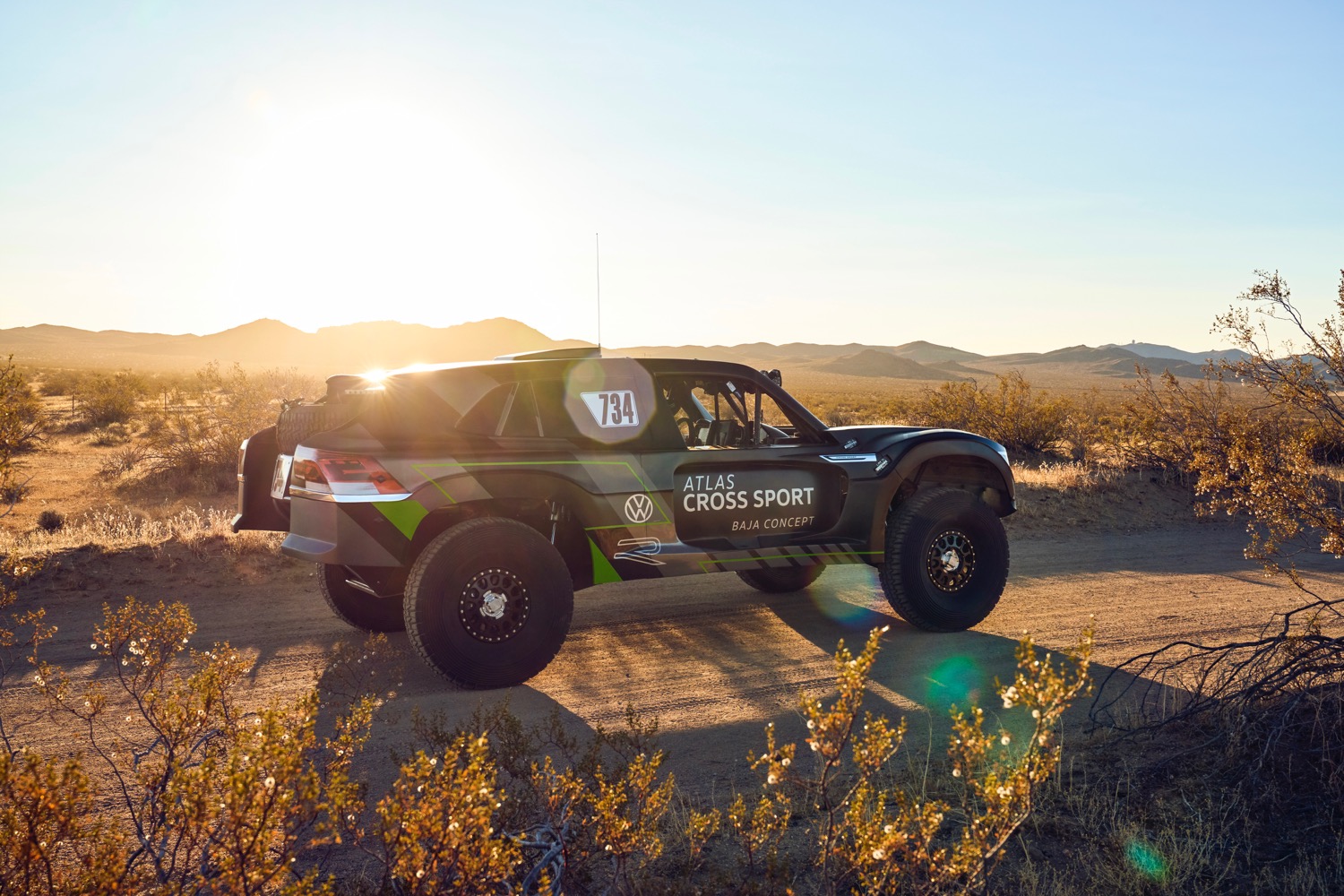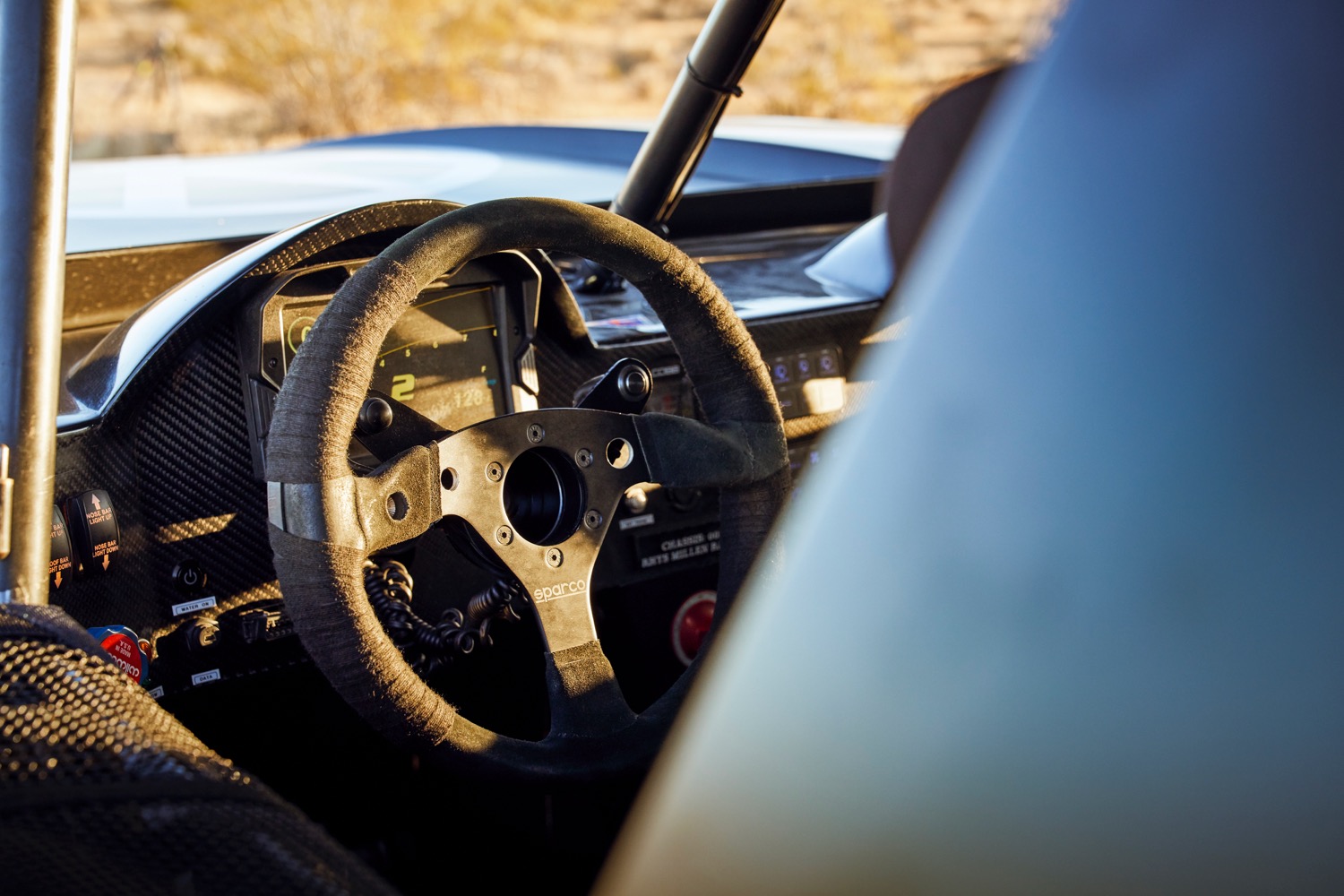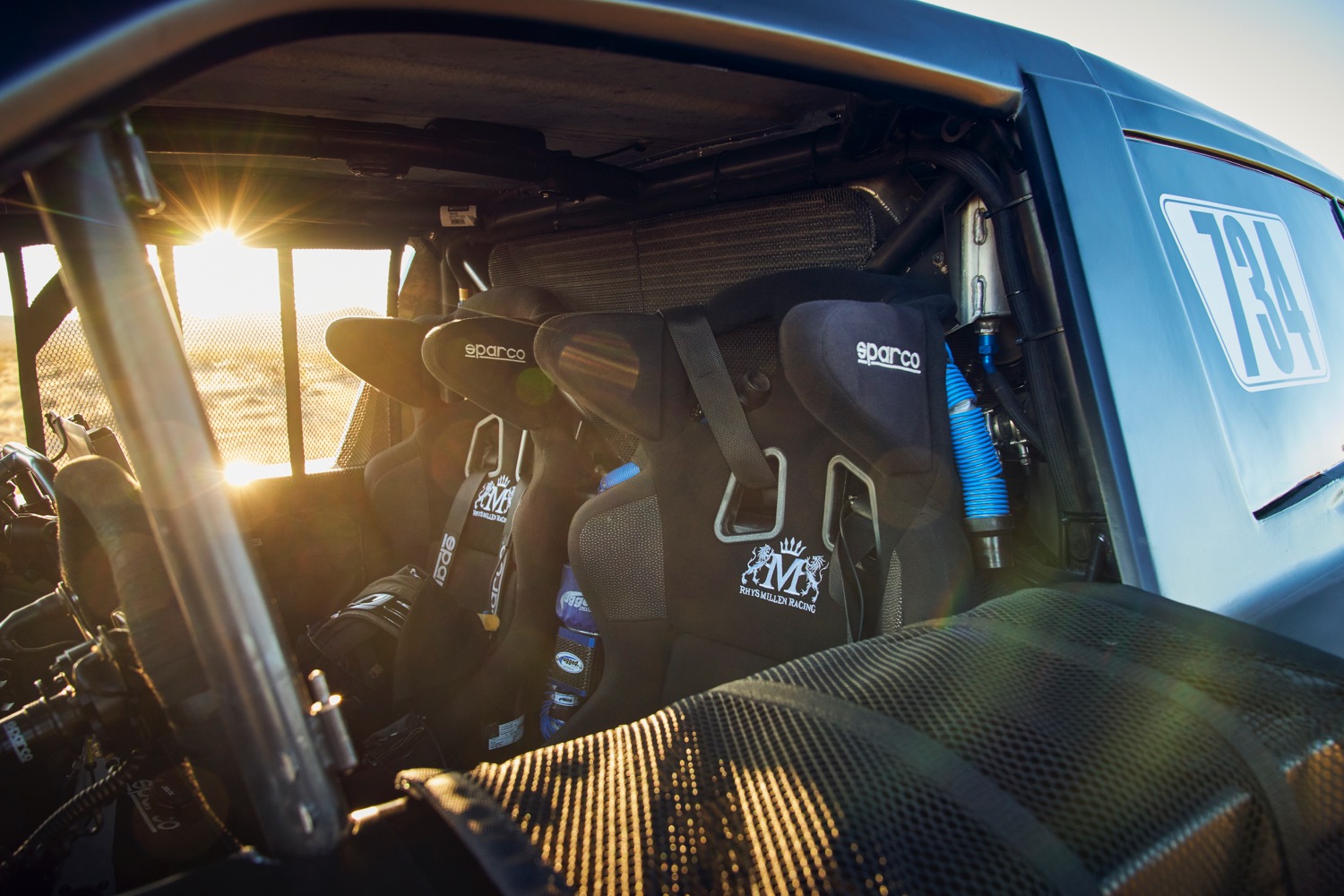The Baja 1000 is one of the most legendary races on the planet, and Volkswagen has a long history there. VW Beetles and Beetle-based dune buggies are a staple of the Baja 1000, which traverses 1,000 miles of treacherous terrain in Mexico. In 2020, Volkswagen will return to Baja with a very different kind of vehicle — a race truck dressed to look like the Atlas Cross Sport family crossover.
Dubbed Atlas Cross Sport R, the racer has nothing in common with the stock Cross Sport, which is a five-seat version of the Volkswagen Atlas. Underneath the swelled bodywork is a 2.0-liter turbocharged four-cylinder engine from VW’s Rallycross Beetle. That tiny engine makes 600 horsepower in the Beetle, but it will be detuned to 480 hp in the Cross Sport R to ensure it can last the entire Baja race, according to Volkswagen. For comparison, the stock Cross Sport is available with either a 2.0-liter turbo-four making 235 hp, or a 3.6-liter V6 with 276 hp.
It may have an internal-combustion engine, but Volkswagen wants to minimize the Cross Sport R’s carbon footprint. The automaker will pay to plant 1,000 trees — one for every mile the Cross Sport R will race. This begs the question of why VW didn’t simply install an electric powertrain. VW has plenty of experience with racing electric cars on pavement. The Volkswagen ID.R has set records at the Pikes Peak International Hill Climb and the Nürburgring. VW is also launching a line of electric production cars, although an Atlas-sized crossover isn’t among them.
The Atlas Cross Sport R will be driven by professional racer and television host Tanner Foust. Fresh off winning the 2019 American Rallycross Championship in a VW Beetle, Foust previously hosted the American version of Top Gear. The 2019 race will also see Ford try to repeat its 1969 win with a souped-up Bronco.
The Volkswagen Atlas Cross Sport R made its public debut at this week’s 2019 Los Angeles Auto Show. VW also unveiled the ID.Space Vizzion concept in L.A. The latest in a series of all-electric concept cars, the ID.Space Vizzion is a wagon-like vehicle with a 300-mile range. Volkswagen has hinted that it could go into production sometime in the next few years.
Editors' Recommendations
- 2020 Nissan Sentra banishes boring styling, as well as its turbocharged engine
- Hyundai shocks us with its mid-engined RM19 sports car concept
- Too hip for a minivan? Check out VW’s all-electric ID.Space Vizzion concept
- Acura adds some supercar touches to its MDX family crossover
- Volkswagen aims for value with its updated 2020 Passat sedan
